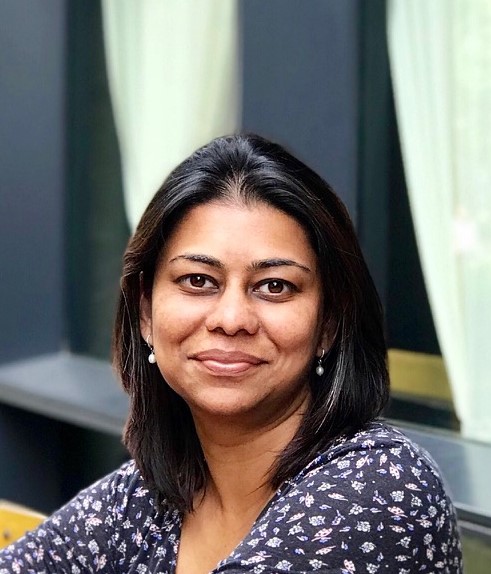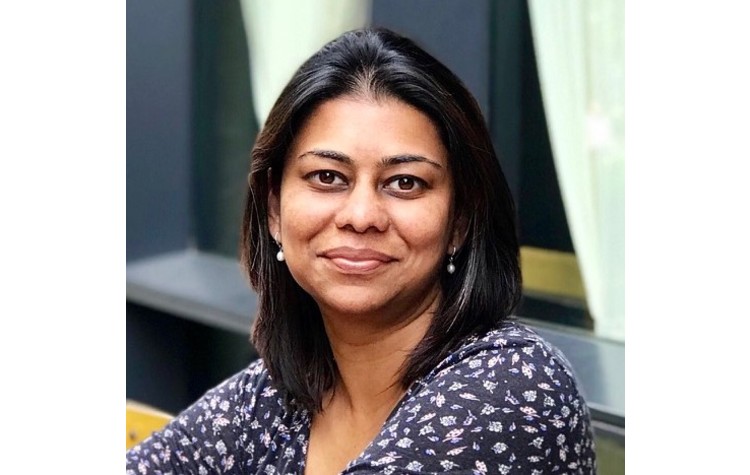 For this month’s e-newsletter, FORUM-ASIA talked with Melissa Ananthraj, who just joined us as the new Communication and Media Programme manager. In this interview, Melissa shared with us her inspiration from childhood and how she uses communication as a tool to tell peoples’ stories
For this month’s e-newsletter, FORUM-ASIA talked with Melissa Ananthraj, who just joined us as the new Communication and Media Programme manager. In this interview, Melissa shared with us her inspiration from childhood and how she uses communication as a tool to tell peoples’ stories
How did you become involved with human rights? And how did you become involved with FORUM-ASIA?
Growing up, I was surrounded by friends and family who were always active in outreach and working with refugees and missions work in Malaysia as well as abroad, and I witnessed the compassion my parents had for others and how my father would constantly fight for equality in his workplace and the community. As I started to understand more about human rights and equality, I started to be more aware of places, spaces, and situations where human rights were ignored or abused.
After being in the corporate world for more than 20 years, spending a lot of the time creating communication strategies for corporations, and I had also worked for heritage and environmental non-governmental organisations, I took a career break to spend a few years abroad to pursue my Masters with a focus on sustainable development.
It was then that I was exposed to a larger and an in-depth view and understanding of human rights and development. It was also the moment that I really became interested in human rights and started to do a lot more research and developed a lot more understanding of human rights and the current situation with a special focus on Asia.
After completing my Masters, I was looking for something in not-for-profits. The opportunity came up at FORUM-ASIA and it was a communications role, so I was very excited that I could use my experience in communications to learn more about human rights.
What motivated you to become involved? And has that motivation changed over the years?
I watched my family get involved with fighting against inequality all my life, and it was something that has always been a part of childhood. So, it was only natural to be involved, but I seriously become more interested when I read, researched, and spoke to people about environmental issues and human rights.
It is the idea that we all can do something to be a force for good. I was also getting more and more uneasy with some of the things that were happening around me, in the political arena, and with social inequality. Persecution for being different, for having different beliefs, and for just being a different gender, color, or creed was making me uneasy and angry. I started to see that I needed to get more involved.
The uneasiness and the anger are still there, but now it helps to fuel and motivate my work and passion. It helps to see what else I can do with my experience.
Please tell us one of the most inspiring moments for you in your work in the past?
Although I have just joined FORUM-ASIA, I am constantly inspired by the tireless work of my colleagues as well as human rights defenders across Asia. Every success story is an inspiration that we can do more, and to keep pushing through.
I recall when I first joined and there was a landmark case on land grabbing, where Cambodian plaintiffs representing more than 700 farming families won a landmark appeal allowing them to move forward with their class action suit. This now changes the legal landscape, providing that class action legislation can be used in transboundary cases and to protect some of the region’s most vulnerable peoples. It was truly inspiring to see that the tireless work of these farmers and human rights defenders have come to fruition.
What do you experience as the main challenges as someone working on human rights? And how do you deal with such obstacles in your work?
Working anywhere has its own set of challenges and with human rights, it is the challenge of
getting the actual story out there. As a communications professional, it is imperative that I tell the actual story and provide the information needed without fear of repercussions. It is an uphill battle as grassroots stories are often muzzled, and people on the ground like human rights defenders cannot tell their stories due to threats to lives and livelihood. It is our role as communicators to ensure that the stories of people who are passionate and willing to fight for human rights causes be told with truth and respect.
We will need to evolve and change the way we communicate human rights issues, as the world constantly evolves and political agendas change. We are more online now than ever before, and we have to learn to bring messages not only using traditional forms of communications but to explore new and innovative ways to tell important stories. We must also communicate our successes and breakthrough! This is essential to ensure that people do not get weary and give up, but continue to stay the course and fight for their cause.
It is really encouraging to see human rights organisations across the globe work together – even when sometimes it is for different causes, we will need to encourage more communication to foster an even larger engagement as we are stronger together!
If you could give a message to the new generation of people working on human rights or development, what would it be?
To truly open yourself up to the world, travel (when it is safe!), and speak and learn from others around you. It is amazing what can happen when you take the time to step back and take a look around, and see how wonderfully diverse we truly are, and how wonderfully we are all bound together.
We all have the potential to see beyond ourselves to make a difference, and to make a change in someone’s life. What I have learnt and seen from passionate people around the world and from history, it takes just one action to break the links in the chains of inequality and silenced freedom. Oh, and read! Read and be inspired by stories of bravery and of breaking out and finding your own voice. You have one, so use it to break the links of abuse even before it starts.
‘With the first link, the chain is forged. The first speech censored, the first thought forbidden, the first freedom denied, chains us all irrevocably.’— Jean-Luc Picard, Star Trek, The Next Generation.




